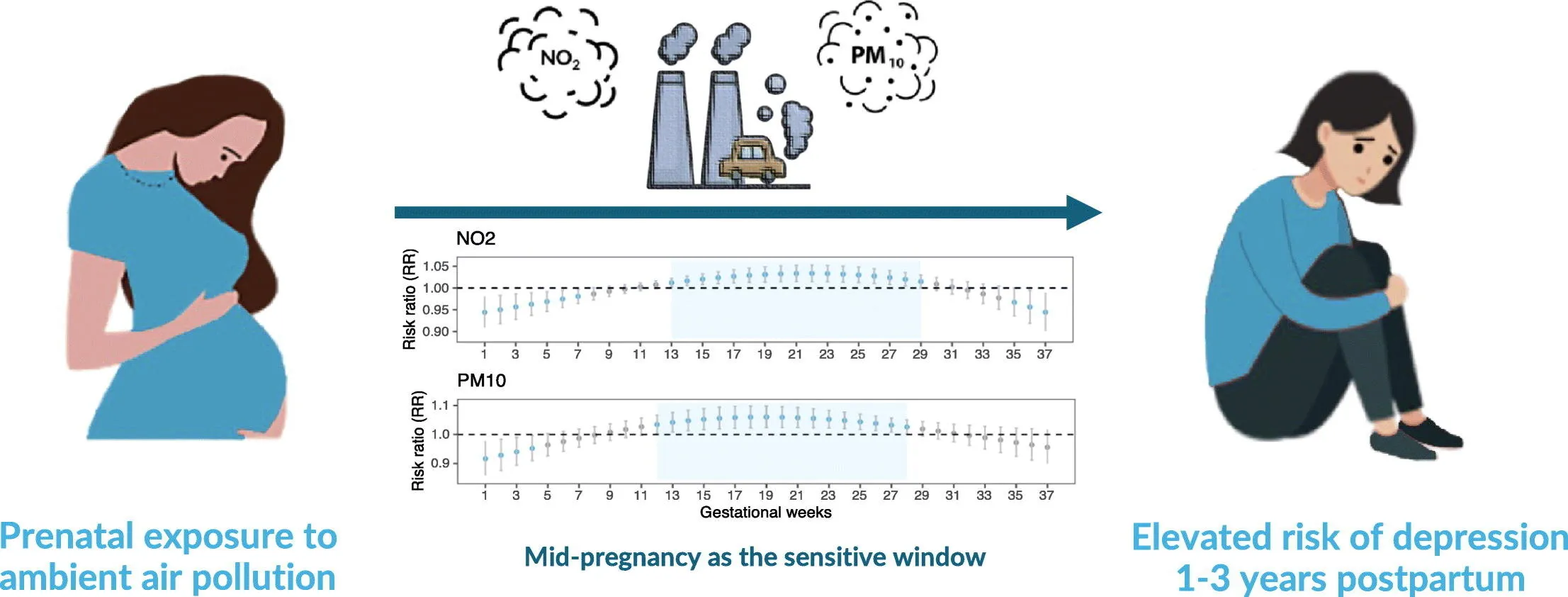The Impact of Air Pollution on Health Research: Postpartum Depression Risks

Study Overview
This article discusses a groundbreaking study highlighting the link between air pollution exposure during pregnancy and the risk of postpartum depression. Specifically, women exposed to higher levels of nitrogen dioxide (NO2) or inhalable particulate matter (PM10) during the second trimester are significantly affected.
Key Findings
- Increased Risk: Women with elevated exposure face almost fourfold increased risk of developing postpartum depression.
- Long-Term Effects: This heightened risk extends at least three years postpartum.
Health Implications
These findings underscore the urgent need for further health research in understanding how environmental pollutants during pregnancy impact maternal health. Addressing air quality could potentially mitigate risks associated with mental health disorders post childbirth.
This article was prepared using information from open sources in accordance with the principles of Ethical Policy. The editorial team is not responsible for absolute accuracy, as it relies on data from the sources referenced.